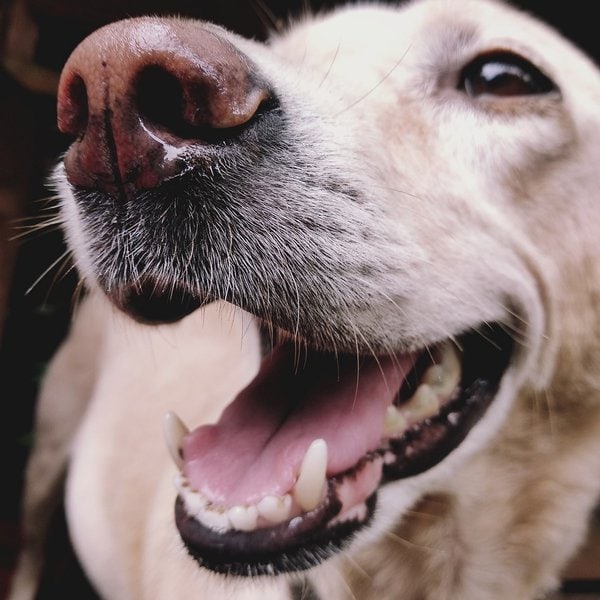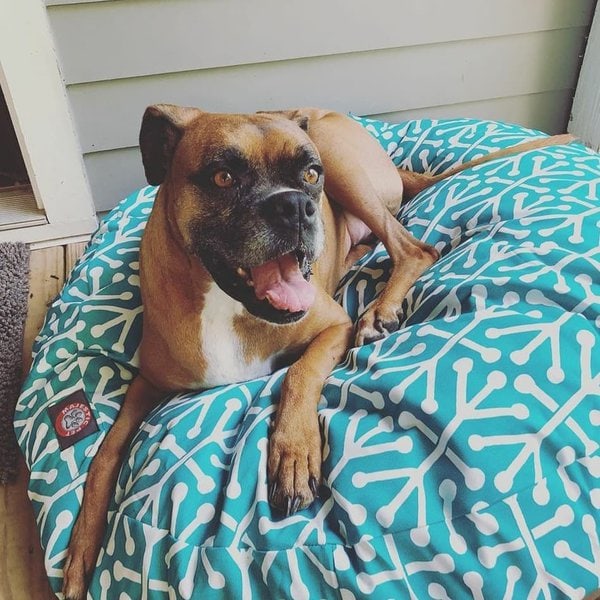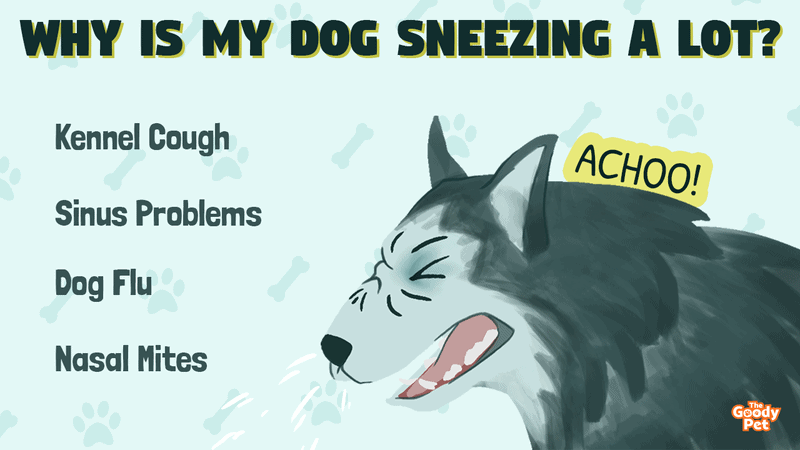Watching your dog scrunch up their face in readiness for a sneeze can be a great source of laughter. However, if the sneezing happens for more than a couple of times, most dog owners will start getting worried that there’s something wrong with their pooch. So, what causes sneezing in dogs?
Dogs sneeze for a wide range of reasons. Sneezing can be caused by minor irritations, and it can also be a sign that your doggo is having loads of fun. Sometimes, however, sneezing can also be a sign of more serious health issues.
If your dog has been sneezing constantly and you’re concerned about their health, this guide will help you figure out what is going on with your beloved pooch, and what you can do about it. In this guide, we are going to look at the major causes of sneezing in dogs, what to do about it, and when to see a vet.
Before that, however, let’s start by looking at the most pertinent concern… Is it bad for your dog to sneeze?
Is It Bad If My Dog Sneezes A Lot?
If your dog sneezes once or twice, there’s no reason to be worried. In most cases, such sneezing is caused by something that will pass on its own within no time.
However, it is not normal for your dog to keep sneezing. If the sneezing has been going on for an extended period of time, this is a sign that something is wrong.
So, what does it mean if my dog is constantly sneezing? Some of the causes of constant sneezing in dogs include…
Colds
If your dog keeps on sneezing and has a runny nose as well, there is a high chance that your dog has caught a cold.
Like humans, it is possible for dogs to get colds and sneeze. So, how do you tell if your dog has a cold, or if there is something else disturbing them?
If your dog has a cold, you’ll also notice other symptoms in addition to the sneezing and running nose. These include lethargy, coughing, fever, redness of the eyes, and nasal congestion and discharge.
Allergies
Constant sneezing in dogs can also be caused by an allergic reaction to something, such as pollen, certain foods, dust, or other irritants in the air. In most cases, the symptoms of such allergic reactions are very similar to those of a cold.
So, how do you tell if your dog has a cold or allergies? Dogs that have allergies will often show lots of itchiness. The itchiness can be concentrated on one spot, or all over the body.
Allergies also come with other symptoms that are uncommon in colds, such as vomiting, hives, diarrhea, and swelling around the face, ears, eyelids, and mouth.

When Should I Be Concerned About My Dog Sneezing?
You should worry if your dog sneezes when the sneezing is accompanied by other worrying symptoms, such as breathing difficulties, loss of appetite, extreme lethargy, a hacking cough, and high fever.
If you notice any of the above signs, you’ll need to consult a vet to ensure that your pooch is not suffering from a condition that could become life-threatening. Some conditions that you need to watch out for include…
Kennel Cough
Sneezing can be a sign of kennel cough, a condition that is caused by inhalation of virus or bacteria. If your canine buddy has kennel cough, the sneezing will be accompanied by a persistent, forceful cough.
Other symptoms of kennel cough include a runny nose, decreased energy levels, loss of appetite, and eye discharge.
Dog Flu
Your doggie’s sneezing could also be caused by dog flu, which is caused by the canine influenza virus. Unfortunately, the signs of dog flu are very similar to those of kennel cough, and therefore, it can be a bit difficult to tell if your pooch has a flu or something else. Only a vet will be able to make an accurate diagnosis.
If your four-legged buddy is diagnosed with dog flu, the vet will recommend frequent fluid intakes and lots of rest. Depending on the severity of the flu, they could also prescribe some antibiotics.
Sinus Problems
Like humans, dogs also have sinus problems, which can lead to sneezing. Most sinus problems in dogs are caused by infections of the nasal cavity. Sometimes, however, sinus problems will also arise from dental infections.
In addition to sneezing, dogs with sinus problems will exhibit symptoms like coughing, gagging, reverse sneezing, nasal blockage and congestion, nasal discharge, and swelling around the snout.
Nasal Mites
Sneezing in dogs could also be caused by nasal mites. Nasal mites are very tiny bugs that live inside a dog’s nose. As they reproduce and multiply in your dog’s nasal passages, these mites can cause lots of discomfort, leading to sneezing.
So, how do you know if your dog has nasal mites? If you suspect your beloved pooch has nasal mites, you’ll need to take them to a vet, where a CT scan or nasal endoscopy will be performed to check for the mites.
If the vet confirms that your furry buddy has an infestation of nasal mites, they’ll recommend anti-parasitic medications to treat the infestation.

What Should I Do If My Dog Keeps Sneezing?
If less severe, most cases of sneezing in dogs should clear out by themselves within a few days.
If the sneezing does not clear out within a few days, you have several options for treating your pooch, including giving antibiotics, antihistamines, or nasal sprays. In more severe cases, a visit to the vet will be your best bet.
Below, let’s check out what you need to know when it comes to treating your canine buddy for sneezing.
What Can I Give My Dog For Sneezing And Runny Nose?
The best way to help a dog who is sneezing and has a runny nose is to keep them away from any irritants that could be causing the sneezing. You can also buy some nasal decongestants from your local pet shop and use them to clear your doggie’s nose.
What Can I Give My Dog For Nasal Allergies?
If your dog’s sneezing is due to an allergic reaction, the best remedy is to use antihistamine nasal sprays.
Antihistamines work by inhibiting the production of histamines in reaction to the allergic substance. If your dog’s allergic reaction is severe, you can use steroid nasal sprays instead of antihistamines.
How Do I Treat My Dog’s Nose Mites?
If a vet has confirmed that your fido has nasal mites, the mites infestation can be treated using various anti-parasitic medications. One of the antiparasitic drugs that is very effective against nasal mites (and other types of mites) is Ivermectin.
Can You Use Saline Nasal Sprays On Dogs?
In cases where your dog’s sneezing is caused by colds and is accompanied by nasal congestion, it is totally safe to use saline nasal sprays to clear your doggie’s nasal passages.
Can I Give My Dog Benadryl For Sneezing?
Yes, Benadryl is an approved treatment for sneezing in dogs. This drug works by blocking histamine receptors in the body, thus reducing the effect of the histamines. Benadryl also helps relieve the inflammation caused by allergens.
Should I Take My Dog To The Vet For Sneezing?
If your dog’s sneezing is accompanied by other worrying symptoms like lethargy, loss of appetite, high fever, and signs of pain, it is recommended that you take your dog to the vet immediately, since these could be signs that your dog is dealing with a life-threatening condition.
In addition, if you’ve given normal remedies for sneezing but your dog doesn’t seem to be getting any better, you’ll need to take them to the vet.






